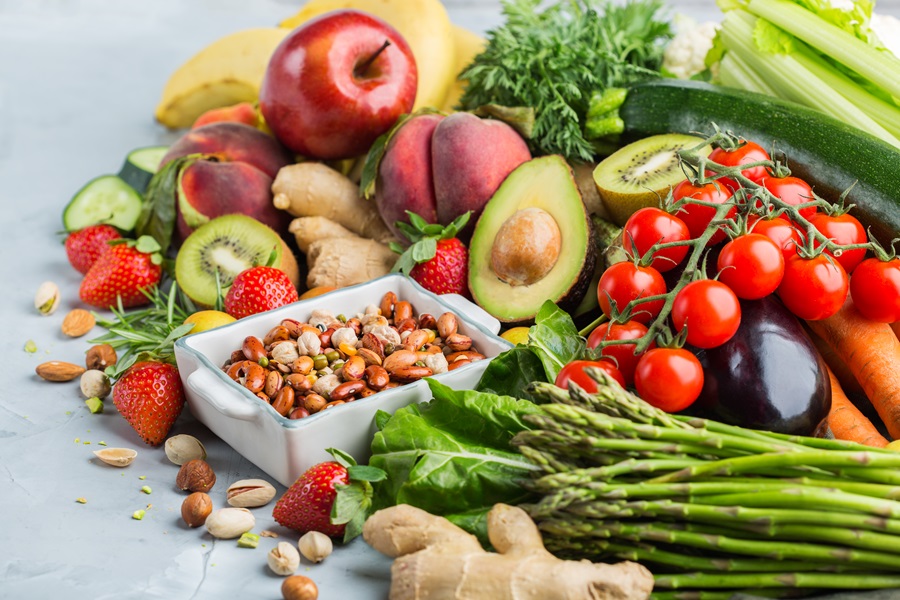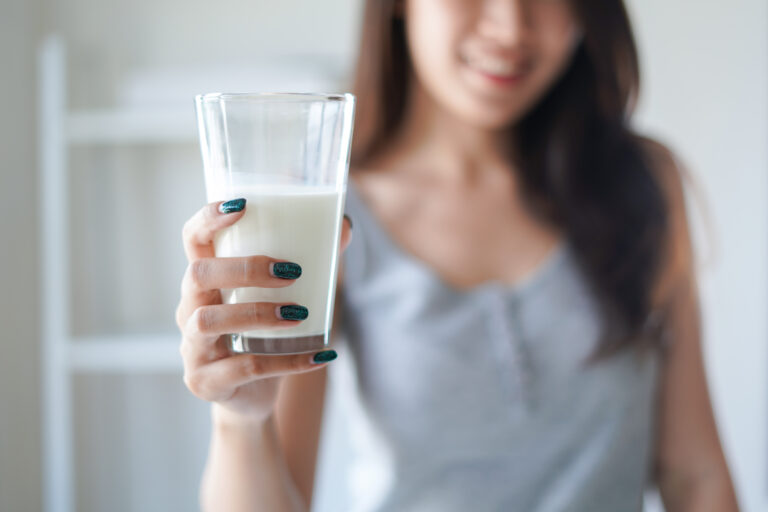LDL cholesterol, often labelled as “bad” cholesterol, plays a critical role in your overall heart health. When LDL levels are too high, a buildup of plaque in your arteries can result, increasing the risk of heart disease, stroke, and other chronic conditions. Keeping LDL cholesterol in check is essential for reducing these risks and maintaining a healthy cardiovascular system. While lifestyle changes such as a healthy diet, quitting smoking and regular exercise are effective, well established strategies for managing cholesterol, there’s another natural option that’s gaining attention: plant sterols.
What are plant sterols?
Plant sterols, also known as phytosterols, are naturally occurring compounds found in plants. Structurally similar to cholesterol in the human body, plant sterols are present in small amounts in a many plant-based foods, including vegetables, fruits, whole grains, nuts, seeds, and legumes.
How do plant sterols lower LDL cholesterol?
When you consume plant sterols, they compete with cholesterol for absorption in the gut, effectively blocking cholesterol from being absorbed into the bloodstream. This leads to more cholesterol being excreted from the body and a decrease in overall LDL cholesterol levels in the blood. Numerous studies have demonstrated the cholesterol-lowering effects of plant sterols, showing that consuming between 2-3g of plant sterols per day can reduce LDL cholesterol by as much as 12%.
Where to find plant sterols
Although plant sterols are found naturally in many foods including whole grains, vegetables, fruit, nuts, seeds and legumes, the amounts are typically small. To achieve the recommended 2-3 grams per day for cholesterol-lowering benefits, you’d need to consume very large quantities of specific plant-based foods. For context, for someone following a typical diet, their natural plant sterol intake ranges from 200-400 mg daily, and up to 600 mg for someone on vegetarian or vegan diet.
An easy way to increase your plant sterol intake is by consuming foods enriched with plant sterols. There is a growing selection of ‘cholesterol-lowering’ products available in Australian supermarkets, including:
BREAKFAST CEREALS
Weet-Bix Cholesterol Lowering: 2 x Weet-Bix = 2g plant sterols
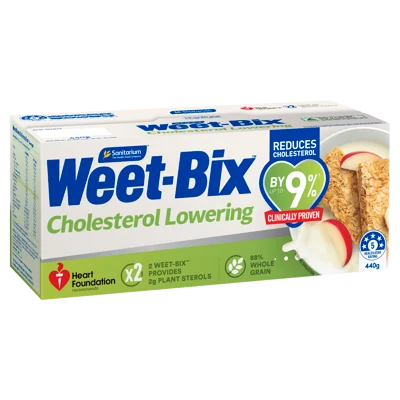
Carman’s Cholesterol Lowering Oats: 50g serve = 2g plant sterols)
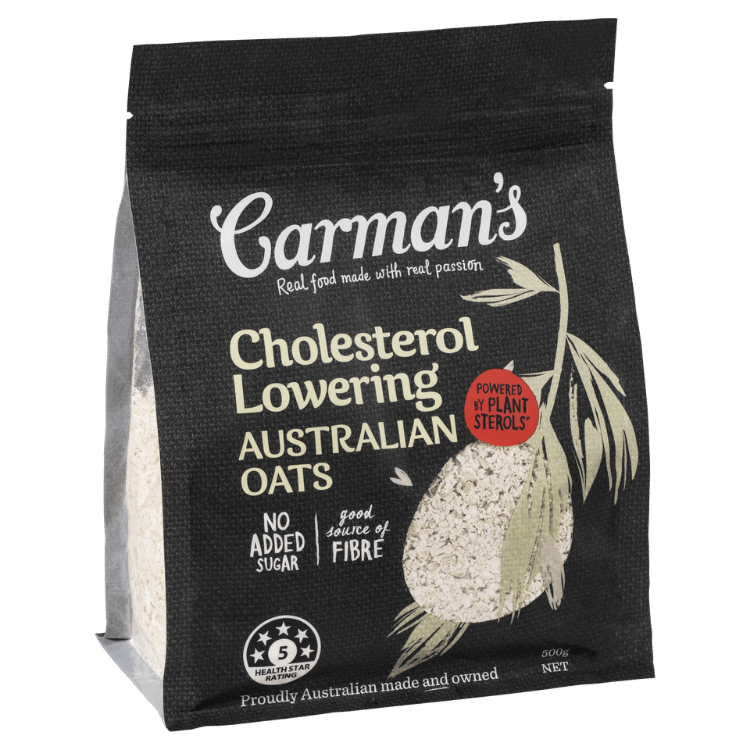
MARGARINES & SPREADS
Flora ProActive: 10g serve = 0.8g plant sterols)
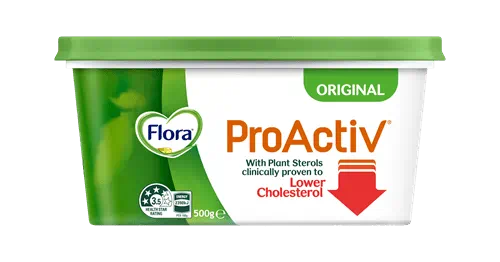
Coles Cholesterol Lowering Spread: 10g serve = 0.8g plant sterols)
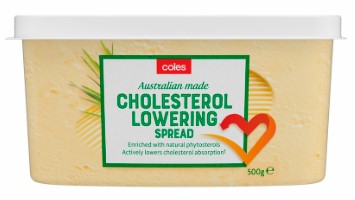
DAIRY AND DAIRY ALTERNATIVES
Dairy Farmers Heart Active Milk: 250ml serve = 0.8g plant sterols)
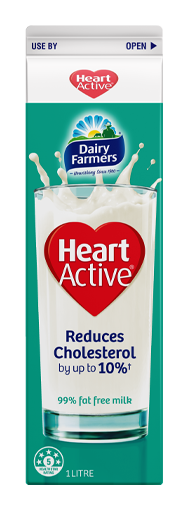
Sanitarium Plantwell Cholesterol Lowering Oat Milk: 250ml serve – 1g plant sterols
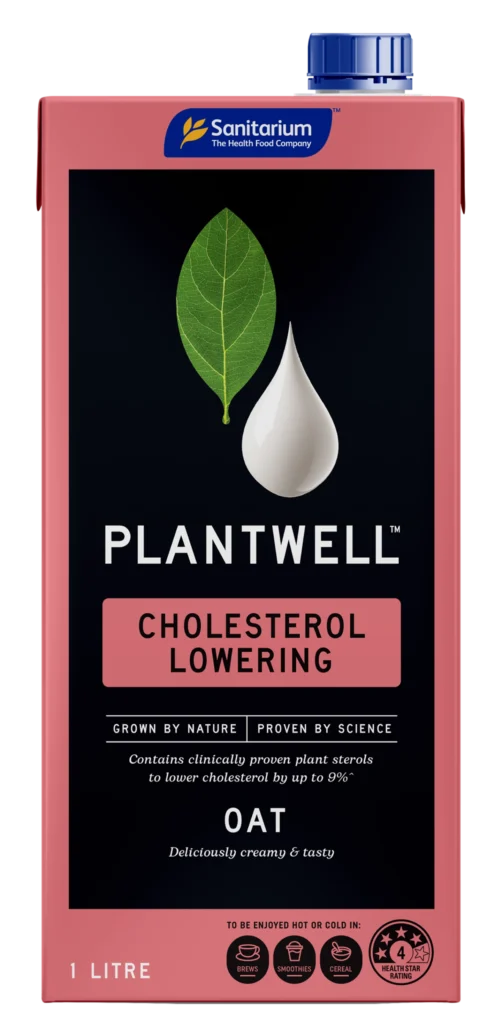
Australia’s Own Cholesterol Lowering Milk: 250ml serve = 0.8g plant sterols
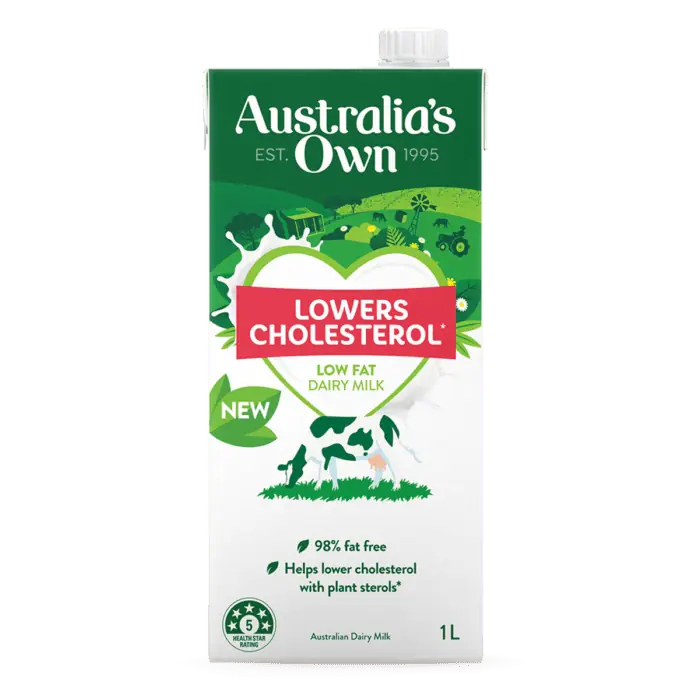
SUPPLEMENTS
Sterols are also available in supplement form and there are currently several products available in Australia, including:
Blackmores Cholesterol Health

Now Beta-Sitosterol Plant Sterols Softgels
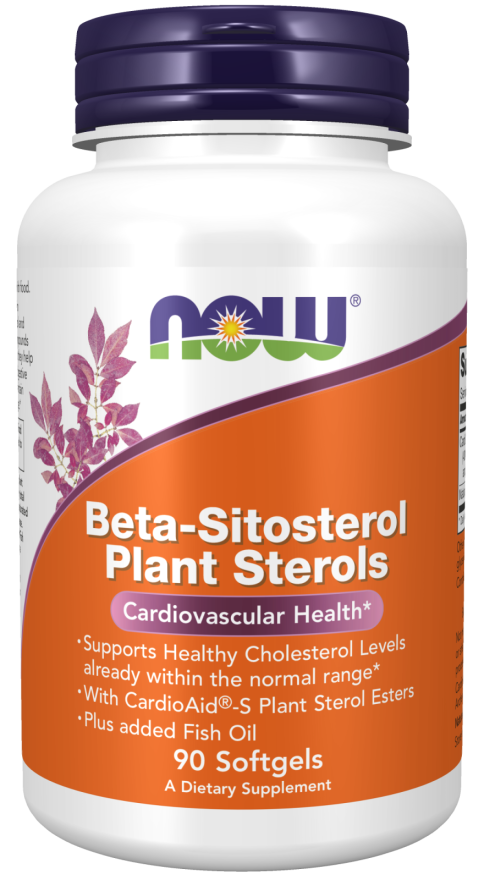
You don’t need to exceed the recommended maximum intake of 3g per day, as most studies show this won’t provide additional cholesterol-lowering benefits.
Can plant sterols be taken alongside cholesterol-lowering medication?
For those already on cholesterol-lowering medications like statins, adding plant sterols can further reduce LDL cholesterol beyond what statins achieve alone. However, they are not a replacement for cholesterol-lowering medications. If you are already taking medication to lower your cholesterol, you should speak to your doctor before you start taking plant sterols.
Are there any side effects?
Plant sterols are safe for most healthy people but aren’t recommended for pregnant or breastfeeding women due to limited research. In rare cases, some individuals might experience mild gastrointestinal issues, such as bloating or diarrhoea when consuming high amounts of plant sterols. If you notice any adverse effects, it’s advisable to consult a healthcare provider.
Plant sterols do not replace a balanced diet and healthy lifestyle
While taking plant sterols has been shown to reduce cholesterol levels, there is currently not enough high quality, long-term evidence to show that they also reduce your risk of having a heart attack or stroke. Plant sterols can play a key role in lowering cholesterol, but they work best when combined with other healthy habits. To help lower cholesterol, it’s important to make long-term changes to your diet and lifestyle, including:
- Replacing unhealthy saturated fats by choosing lean meat, plant-based proteins (e.g. soy, legumes) and lower fat dairy products
- Incorporating more healthy fats such as Omega-3 and omega-6 found foods such as olive oil, fish, avocado, nuts and seeds
- Increasing dietary fibre by eating more whole grains, fruits, vegetables, and legumes
- Stopping smoking
- Being more active
By taking a comprehensive and holistic approach to your health, you can significantly reduce your risk of heart disease and enjoy a longer, healthier life.
References:
Silverman et al. 2016. Association Between Lowering LDL-C and Cardiovascular Risk Reduction Among Different Therapeutic Interventions: A Systematic Review and Meta-analysis. JAMA. 316(12):1289-1297. Available at https://jamanetwork.com/journals/jama/fullarticle/2556125
Trautwein et al. 2018. LDL-Cholesterol Lowering of Plant Sterols and Stanols—Which Factors Influence Their Efficacy? Nutrients. 10(9):1262. Available at https://www.ncbi.nlm.nih.gov/pmc/articles/PMC6163911/
Ras et al. 2014. LLD-cholesterol-lowering effect of plant sterols and stanols across different dose ranges: A meta-analysis of randomised controlled studies. Br. J. Nutr. 112:214–219. Available at: https://www.ncbi.nlm.nih.gov/pmc/articles/PMC4071994/
Ras et al. 2015. Intake of phytosterols from natural sources and risk of cardiovascular disease in the European prospective investigation into cancer and nutrition-the Netherlands (epic-nl) population. Eur. J. Prev. Cardiol. 22:1067–1075.
De Smet E et al. 2012. Effects of plant sterols and stanols on intestinal cholesterol metabolism: Suggested mechanisms from past to present. Mol. Nutr. Food Res. 56, 1058–1072. Available at: https://onlinelibrary.wiley.com/doi/full/10.1002/mnfr.201100722
Han et al. 2016. Effects of plant stanol or sterol-enriched diets on lipid profiles in patients treated with statins: systematic review and meta-analysis. Sci Rep. 6, 31337. Available at: https://doi.org/10.1038/srep31337
